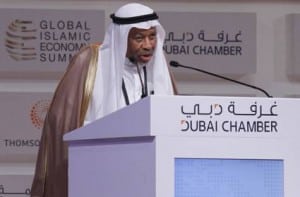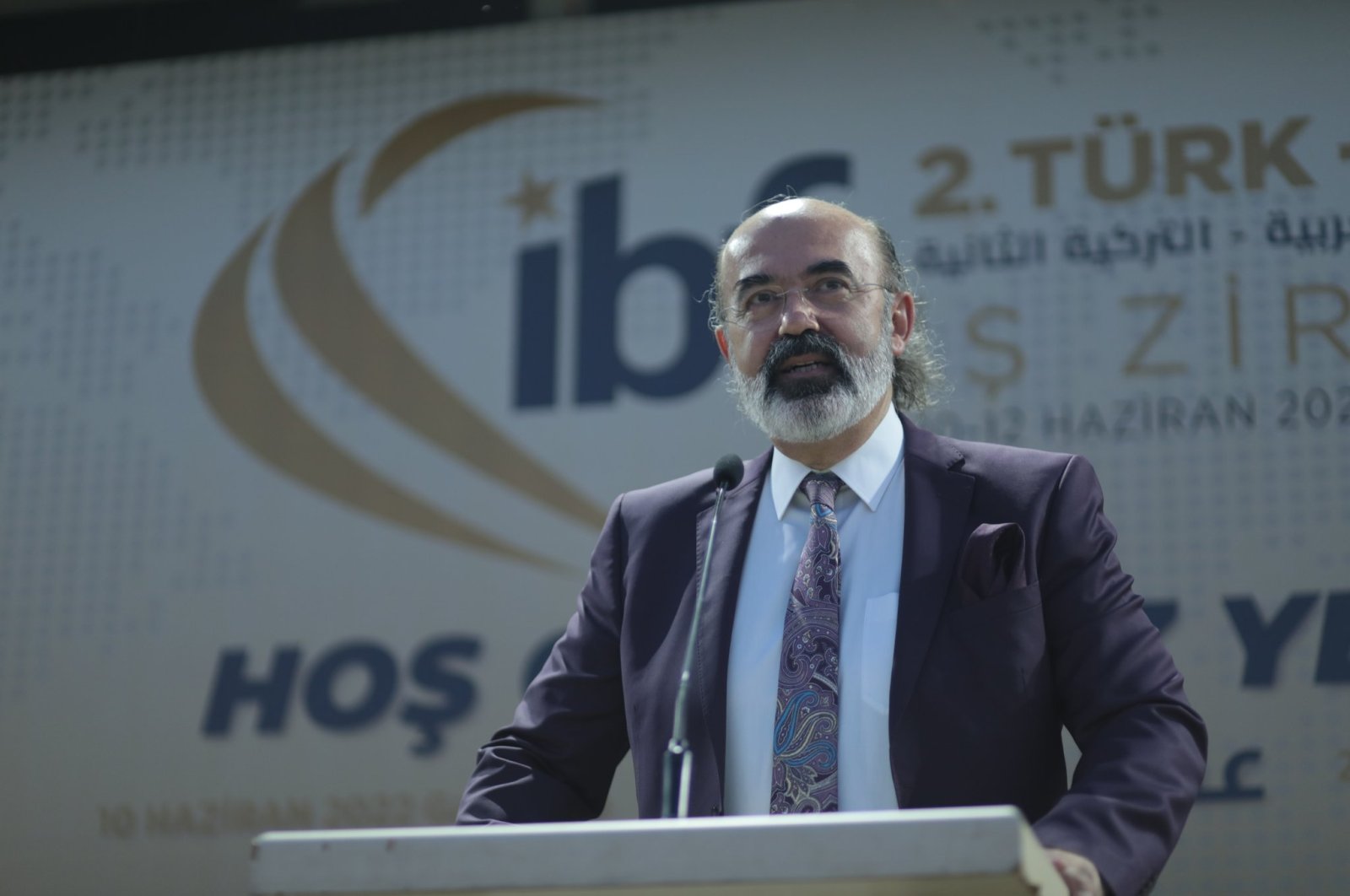By Zaher Bitar, Senior Reporter, Gulf News

Ahmed Ali Al Madani, President, Islamic Developement Bank, Saudi Arabia
Dubai: Islamic governments should work hard to escalate the environment of the Islamic businesses trying to attract different investments and eliminate all obstacles in the face of Islamic industry, Ahmad Ali Al Madani, President of Islamic Development Bank in Saudi Arabia said.
“Financial institutions and professionals should find out extra financial tools that can ensure long-term lending for Islamic businesses,” said Al Madani in his keynote speech at the opening ceremony of the Global Islamic Economy Summit in Dubai yesterday.
He added that these governments should also pay attention to the potential investments in Africa and Asia which can rescue their people from poverty.
His Highness Shaikh Mohammad Bin Rashid Al Maktoum, UAE Vice President and Prime Minister and Ruler of Dubai, inaugurated the Global Islamic Summit on Monday amid a great enthusiasm towards positioning Dubai as the world capital for Islamic Finance.
Organised by Thomson Reuters and Dubai Chamber of Commerce and Industry, the opening ceremony was attended by Shaikh Hamadan Bin Mohammad Bin Rashid Al Maktoum, Dubai Crown prince, Shaikh Majid Bin Mohammad Bin Rashid Al Maktoum, Chairman of the Dubai Culture & Arts Authority, and Shaikh Mansour Bin Mohammad Bin Rashid Al Maktoum amid a huge gathering of top government officials and ministers, as well as thousands of experts and professionals in the field.
Two basic tools
Highlighting two basic tools of the Islamic economy, Al Madani said that through Zakat and Waqf governments can build a new track in development and social prosperity.
He also confirmed the capability of Dubai in supporting the Islamic financial sector to beat all challenges and draw a new future for the Islamic economy overall by investing in all possible opportunities.
In his keynote Speech, Obaid Humaid Al Tayer, Minister of State of Financial Affairs, highlighted that the Islamic industry has witnessed a double digit growth across all its business sectors almost in all Islamic countries because of the increase in demand.
“These business sectors will continue its progress in line with the Dubai initiative, including Islamic finance, travel and tourism, food and pharmaceutical, digital economy and others,” he said.
Expecting further growth in the Islamic financial sector, Al Tayer said: “The total asset value of the Islamic banks in the UAE is worth Dh38.4 billion representing 16 per cent of the overall banking sector.”
By 2015, a total of $87-124 billion will flow in to the Islamic banks in the UAE, he added.
UAE is leading GCC countries in sukuk issuance which represents 44 per cent of the overall sukuk values from 2001 until today.
Al Tayer also remarked that the growth in the Islamic finance sector in the UAE will result in an increase in the number of staff from 10,000 to 20,000 by 2015.
Hamad Bu Amim, President and CEO of Dubai Chamber of Commerce and Industry, said that the summit will be an ideal platform to lay the foundations for a strong and vibrant global Islamic business community.
Working with global partners, today Dubai is seeking to bring the Muslim world together under the concept of the Islamic economy, he said.
“We hope to explore the opportunities and possibilities that this huge and growing industry represents. It is estimated that the world’s Muslim population, which currently stands at around 1.6 billion people, will grow by 35 per cent by 2030.”
According to him, 62 per cent of the Muslim world are under 30 years-old and we need to create and build a prosperous future for them and for their children.

Image Credit: Ahmed Ramzan/Gulf News
Shaikh Mohammad Bin Rashid Al Maktoum, Ruler of Dubai, Prime Minister and Vice President of UAE, along with the Islamic Economy Award winner, poses for the picture, during the Global Islamic Economy Summit at Madinat Arena, Madinat Jumeirah, Dubai.
Awards
Shaikh Mohammad Bin Rashid gave away Islamic Economy awards in various categories to 14 winners. The Lifetime Achievement Award went to Ahmad Ali Al Madani, president of Islamic Development Bank in Saudi Arabia.



